Table of Contents
Introduction
Establishing a pharmacy business in Nepal requires navigating through specific regulatory frameworks designed to ensure public health and safety. The pharmacy sector in Nepal has seen significant growth in recent years, owing to increased health awareness, expanding healthcare infrastructure, and growing pharmaceutical needs. This comprehensive guide outlines all possible pathways and requirements for pharmacy registration in Nepal, from individual retail pharmacies to wholesale distribution operations and manufacturing facilities.
Understanding the Pharmacy Sector in Nepal
Nepal’s pharmacy sector is regulated primarily by the Department of Drug Administration (DDA) under the Ministry of Health and Population. The legal framework governing pharmacies includes the Drugs Act 2035 (1978) and its various regulations, which establish standards for drug quality, distribution, sales, and professional practice requirements.
Types of Pharmacy Establishments in Nepal
Before beginning the registration process, it’s important to understand the different types of pharmacy establishments recognized under Nepalese law:
- Retail Pharmacy (Community Pharmacy)
- Direct consumer-facing drug dispensing establishment
- Requires registered pharmacist supervision
- Can be independent or chain pharmacy
- Wholesale Pharmacy
- Distributes pharmaceutical products to retailers
- Higher storage capacity and inventory requirements
- No direct sales to consumers
- Institutional Pharmacy
- Located within hospitals or healthcare facilities
- Serves only patients of the institution
- Higher regulatory requirements
- Manufacturing Pharmacy
- Produces pharmaceutical products
- Requires GMP (Good Manufacturing Practice) certification
- Highest level of regulatory oversight
- Import/Export Pharmacy
- Specializes in international pharmaceutical trade
- Requires special import/export licenses
- Subject to additional regulatory requirements
Key Regulatory Authorities
Department of Drug Administration (DDA)
The primary regulatory body responsible for:
- Licensing pharmacies
- Enforcing drug quality standards
- Regulating pharmaceutical practices
- Monitoring compliance
Nepal Pharmacy Council (NPC)
Responsible for:
- Registration of pharmacists
- Professional practice standards
- Continuing pharmacy education
- Ethical guidelines enforcement
Drug Advisory Committee
Offers guidance on:
- Drug policy development
- New drug approvals
- Pharmaceutical standards
- Quality control mechanisms
Step-by-Step Registration Process for Retail Pharmacies
Step 1: Educational and Professional Qualifications
Different levels of pharmacy practice require specific qualifications:
Category A Pharmacy (Higher Level)
Requires at least one of the following:
- Registered pharmacist with Bachelor of Pharmacy (B.Pharm) degree
- Bachelor of Pharmaceutical Sciences degree
- Master’s in Pharmaceutical Sciences
- Pharmacy doctorate degree
Category B Pharmacy (Medium Level)
Requires at least:
- Diploma in Pharmacy (D.Pharm)
- Certificate-level pharmacy education (CMA pharmacy orientation)
- Professional pharmacy assistant qualification
Category C Pharmacy (Basic Level)
Requires:
- Orientation training certified by DDA (48-hour course)
- Practical experience in pharmacy (minimum 2 years)
- Specific short-term training
Step 2: Professional Registration
- For Pharmacists (Category A)
- Register with Nepal Pharmacy Council
- Submit educational certificates
- Pass NPC registration exam
- Obtain registration certificate
- Annual renewal required
- For Pharmacy Assistants (Category B)
- Register with Nepal Pharmacy Council
- Submit training certificates
- Obtain registration certificate
- Annual renewal required
- For Professionals (Category C)
- Complete DDA-approved orientation training
- Obtain completion certificate
Step 3: Premises Preparation
Select and prepare suitable premises meeting DDA requirements:
Mandatory Physical Requirements:
- Minimum 100 sq. ft. for retail pharmacy (Category C)
- Minimum 150 sq. ft. for Category B pharmacy
- Minimum 225 sq. ft. for Category A pharmacy
- Proper ventilation and lighting
- Clean and hygienic environment
- Separate dispensing area
- Storage facilities meeting temperature requirements
- Separate area for counseling (Category A)
- Proper shelving and display arrangements
- Refrigeration facilities for temperature-sensitive medications
Step 4: Documentation Preparation
Prepare the following documents:
- Pharmacy registration application form
- Professional qualification certificates
- Professional registration certificates
- Citizenship certificate
- Rental agreement or ownership proof of premises
- Business registration certificate
- Municipal recommendation letter
- Tax registration certificate (PAN/VAT)
- Location map of the pharmacy
- Floor plan of premises
- List of proposed medicines to be stocked
- Infrastructure photographs
Step 5: Registration with Local Authority
- Local Municipality Registration:
- Apply for business operation permit
- Pay local business tax
- Obtain recommendation letter
- Tax Registration:
- Register with Inland Revenue Department
- Obtain Permanent Account Number (PAN)
- VAT registration (if annual turnover exceeds threshold)
Step 6: Application to Department of Drug Administration (DDA)
- Initial Application:
- Submit application form with prescribed fee
- Attach all required documentation
- Specify pharmacy category (A, B, or C)
- Inspection Process:
- DDA schedules premises inspection
- Technical officers verify compliance with standards
- Assessment of storage facilities, record-keeping systems
- Verification of professional qualifications
- Final Approval and License Issuance:
- Upon satisfactory inspection
- Payment of license fee
- Receipt of pharmacy operation license
- Initially valid for one year
Step 7: Post-Registration Requirements
- Record Keeping Systems:
- Purchase records
- Sales records
- Prescription records
- Controlled substance logs
- Expired medicine records
- Temperature monitoring logs
- Display Requirements:
- License displayed prominently
- Pharmacist registration certificate
- Pricing information
- Consumer rights information
- Working hours
- Annual Renewals:
- Pharmacy license (with DDA)
- Professional registration (with NPC)
- Local business permits
- Tax registrations
Registration Process for Wholesale Pharmacies
The process for wholesale pharmacy registration follows similar steps but with additional requirements:
Additional Requirements for Wholesale Registration
- Qualified Personnel:
- Mandatory B.Pharm or equivalent qualified person
- Additional technical staff based on operation scale
- Premises Requirements:
- Minimum 500 sq. ft. area
- Separate storage areas for different categories
- Temperature-controlled environments
- Loading/unloading facilities
- Dedicated quality checking area
- Office space
- Documentation:
- All retail pharmacy documents plus:
- Distribution strategy
- Supply chain management plan
- Storage SOP (Standard Operating Procedures)
- Quality assurance protocols
- Transportation arrangements
- List of proposed suppliers and clients
- Financial Requirements:
- Higher initial capital proof
- Bank guarantee (amount varies)
- Insurance coverage
Specific DDA Requirements for Wholesalers
- Application to DDA with specialized wholesale form
- More comprehensive inspection process
- Higher licensing fees
- Additional compliance with special storage requirements
Registration Process for Manufacturing Facilities
Establishing a pharmaceutical manufacturing facility involves a more complex registration process:
Step 1: Initial Company Formation
- Company Registration:
- Register with Office of Company Registrar
- Minimum capital requirements (significantly higher)
- Shareholder documentation
- Articles and Memorandum of Association
- Industrial Registration:
- Department of Industry registration
- Environmental impact assessment
- Initial manufacturing approval
Step 2: DDA Pre-Approval
- Technical Documentation:
- Detailed project proposal
- Manufacturing facility designs
- Process flow charts
- Quality control protocols
- Equipment specifications
- Technical staff qualifications
- Product dossiers
- Initial Assessment:
- DDA review of technical documentation
- Preliminary approval for establishment
- Site selection approval
Step 3: Facility Construction and Setup
Following DDA guidelines for:
- Clean room specifications
- Manufacturing areas
- Quality control laboratories
- Storage facilities
- Utility systems
- HVAC systems
- Water purification systems
Step 4: Good Manufacturing Practice (GMP) Certification
- GMP Documentation:
- Quality management system
- Standard operating procedures
- Validation protocols
- Calibration systems
- Staff training programs
- GMP Inspection:
- Comprehensive facility inspection
- Documentation review
- Process validation verification
- Quality system assessment
- GMP Certificate Issuance:
- Upon meeting all requirements
- Valid for specified period (typically 2-3 years)
- Subject to periodic re-inspection
Step 5: Product Registration
For each product to be manufactured:
- Submission of product dossier
- Quality testing
- Stability data
- Bioequivalence studies (if applicable)
- Labeling and packaging approval
- Product registration certificate
Step 6: Manufacturing License
Final manufacturing license issued after:
- Successful GMP certification
- Approval of initial product registrations
- Final comprehensive inspection
- License fee payment
Import and Export Pharmacy Registration
For businesses focusing on international pharmaceutical trade:
Import License Requirements
- Basic Requirements:
- All wholesale pharmacy requirements
- Letter of authorization from foreign manufacturers
- Quality assurance documentation from manufacturers
- Import strategy document
- Special Approvals:
- Drug Advisory Committee approval for new molecules
- Import license from Department of Commerce
- NRB (Nepal Rastra Bank) approval for foreign currency transactions
- Documentation for Each Import:
- Pro-forma invoice
- Certificate of Analysis
- Certificate of Pharmaceutical Product (CPP)
- Certificate of Origin
- GMP certificate of manufacturer
- Free Sale Certificate
Export License Requirements
- Basic Requirements:
- Manufacturing license or wholesale license
- GMP certification
- Product registrations
- Export strategy document
- Special Approvals:
- Export license from Department of Commerce
- Certificate of Pharmaceutical Product for each product
- Country-specific documentation
Online Pharmacy Registration Guidelines
The DDA has recently begun addressing online pharmacies, though regulations are still evolving:
Current Requirements:
- Base Requirements:
- Must have physical pharmacy registration first
- Pharmacist must oversee online operations
- Secure prescription verification system
- Secure patient data management
- Proper storage and delivery protocols
- Additional Documentation:
- Online platform security details
- Data protection protocols
- Delivery process documentation
- Return policy documentation
- Patient counseling mechanisms
- Special Considerations:
- Restrictions on certain drug categories
- Prescription verification mechanisms
- Geographic service area limitations
- Record-keeping requirements
Fees and Financial Requirements
Retail Pharmacy
- Application fee: NPR 1,000
- Registration fee:
- Category A: NPR 7,500
- Category B: NPR 5,000
- Category C: NPR 3,000
- Annual renewal fee: 50% of registration fee
Wholesale Pharmacy
- Application fee: NPR 3,000
- Registration fee: NPR 15,000
- Annual renewal fee: NPR 7,500
Manufacturing Facility
- Initial application fee: NPR 10,000
- GMP certification fee: NPR 50,000
- Product registration fee: NPR 5,000-10,000 per product
- Manufacturing license fee: NPR 100,000
- Annual renewal fees vary based on production capacity
Timeline for Registration Process
Retail Pharmacy
- Professional registration: 1-2 months
- DDA application processing: 2-4 weeks
- Inspection scheduling: 1-2 weeks
- Total estimated time: 2-3 months
Wholesale Pharmacy
- Application processing: 1-2 months
- Inspection and verification: 2-4 weeks
- Total estimated time: 3-4 months
Manufacturing Facility
- Initial approval: 3-6 months
- GMP certification: 6-12 months
- Product registrations: 3-6 months per product
- Total estimated time: 12-24 months
Common Challenges and Solutions
Challenge 1: Meeting Technical Requirements
Solution: Consult with pharmacy design specialists before setup; attend DDA orientation programs; review successful pharmacy setups.
Challenge 2: Documentation Completion
Solution: Use DDA checklists; engage with pharmacy associations for guidance; consider hiring regulatory consultants.
Challenge 3: Inspection Approval
Solution: Conduct thorough self-assessment using DDA guidelines; address common inspection failure points; arrange pre-inspection consultations.
Challenge 4: Professional Qualification Requirements
Solution: Partner with qualified professionals; invest in staff education; develop retention strategies for qualified personnel.
Challenge 5: Ongoing Compliance
Solution: Implement digital compliance management systems; schedule regular internal audits; subscribe to regulatory updates from DDA.
Strategic Location Selection
Urban Considerations:
- Higher patient traffic
- Increased competition
- Higher operational costs
- Better access to pharmaceutical supply chains
- More stringent municipal regulations
Suburban/Rural Considerations:
- Less competition
- Potential for community pharmacy development
- Challenges in professional staffing
- Possible relaxation of certain requirements
- Greater need for comprehensive inventory
Proximity Factors:
- Distance from existing pharmacies (some areas require minimum distance)
- Proximity to healthcare facilities
- Accessibility for target populations
- Supply chain logistics
- Security considerations
Ongoing Compliance Requirements
Record Keeping
- Daily sales records
- Prescription records (minimum 2 years)
- Purchase records with batch tracking
- Temperature monitoring logs
- Staff qualification and training records
- Controlled substance logs
- Adverse drug reaction reports
Inspections
- Annual renewal inspections
- Random compliance inspections
- Special category medicine audits
- Consumer complaint investigations
Reporting Requirements
- Quarterly controlled substance reports
- Annual compliance reports
- Adverse drug reaction reporting
- Defective medicine reporting
- Change in personnel notifications
Special Categories of Medicines
Narcotic and Psychotropic Substances
- Special license required
- Enhanced storage security
- Detailed record keeping
- Special prescription requirements
- Regular reporting to DDA
Antibiotics
- Increasingly strict dispensing regulations
- Prescription requirements enforced
- Special record keeping
- Antimicrobial stewardship considerations
Temperature-Sensitive Medications
- Cold chain maintenance
- Power backup systems
- Temperature monitoring and logging
- Special handling procedures
Franchising Opportunities
For entrepreneurs interested in franchise pharmacy models:
Legal Framework:
- Franchise agreement must comply with DDA regulations
- Each location requires separate registration
- Qualified person must be present at each location
- Brand standards must meet or exceed DDA requirements
Registration Process:
- Individual registration for each outlet
- Standardized protocols across locations
- Centralized quality assurance systems
- Independent professional responsibility
Educational and Professional Development Requirements
Continuing Education
- Registered pharmacists: 10 CPD points annually
- Pharmacy assistants: Annual refresher training
- Category C practitioners: Biennial orientation
Documentation of Training
- Staff training records
- Professional development portfolios
- CPD certificates
- Orientation completion records
Frequently Asked Questions
Is a pharmacy degree mandatory to open a pharmacy in Nepal?
Not necessarily. The category of pharmacy determines the qualification requirements. Category C pharmacies can be operated by individuals with appropriate orientation training and experience, while Category A pharmacies require qualified pharmacists with degree-level education.
Can a foreign national open a pharmacy in Nepal?
Foreign investment in retail pharmacy is currently restricted. However, foreign nationals can invest in pharmaceutical manufacturing with proper approvals and by following foreign investment regulations.
How far must a new pharmacy be from existing pharmacies?
There is no national standard minimum distance requirement. However, some municipalities impose local restrictions, typically ranging from 100-300 meters between pharmacies in urban areas.
Can one pharmacist provide supervision for multiple pharmacies?
No, DDA regulations require that each pharmacy have its dedicated qualified person. A registered pharmacist cannot provide simultaneous supervision to multiple locations.
Are online prescriptions acceptable for dispensing?
Currently, Nepal’s regulations require original prescriptions for most prescription medications. However, regulations around digital prescriptions are evolving. Always verify the current requirements with DDA.
What are the consequences of operating without proper registration?
Operating an unregistered pharmacy can result in penalties including fines, medication seizure, business closure, and potential legal proceedings. Penalties have been increased under recent amendments to the Drugs Act.
Can a pharmacy sell non-pharmaceutical products?
Yes, pharmacies can sell related healthcare products, cosmetics, nutritional supplements, and medical devices. However, these should be kept separate from medicines, and certain product combinations may be restricted.
How often does a pharmacy need to be inspected?
Formal inspections occur during initial registration and annual renewals. However, DDA conducts random inspections throughout the year to ensure compliance. Pharmacies must be prepared for inspection at any time.
Can a pharmacy be transferred to another owner?
Yes, pharmacy ownership can be transferred, but it requires DDA approval. The new owner must meet all qualification requirements and update the registration accordingly.
What is the process if I want to relocate my pharmacy?
Relocation requires prior approval from DDA. You must submit an application detailing the new location, updated floor plans, and go through inspection of the new premises before transferring operations.
Conclusion
Establishing a pharmacy in Nepal involves navigating a complex regulatory framework designed to ensure public health safety. While the process may seem demanding, each requirement serves to maintain high standards in pharmaceutical care across the country.
Successful pharmacy registration requires careful planning, thorough preparation, and ongoing attention to compliance requirements. By understanding the different pathways available—from basic retail operations to wholesale distribution or manufacturing—entrepreneurs can select the most appropriate approach for their goals and capabilities.
The pharmacy sector in Nepal continues to evolve, with increasing standards and modernization efforts underway. Staying connected with professional associations and regulatory updates is essential for long-term success in this dynamic healthcare field.
With proper preparation and professional guidance, navigating the registration process becomes manageable, opening opportunities to contribute to Nepal’s healthcare system while building a sustainable pharmacy business.



